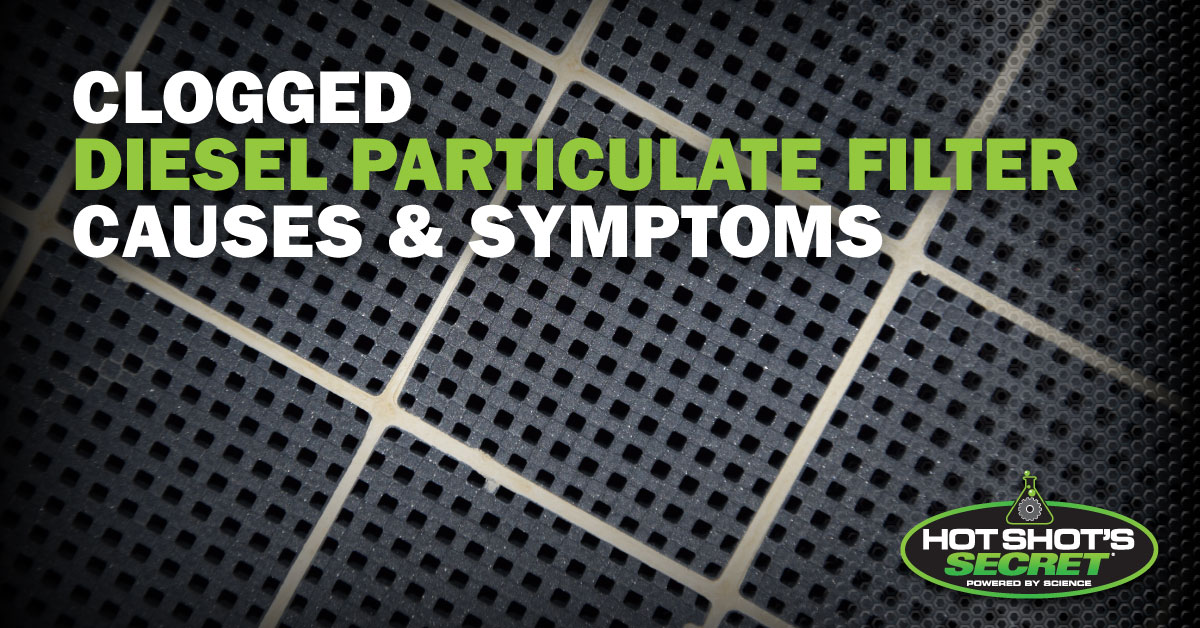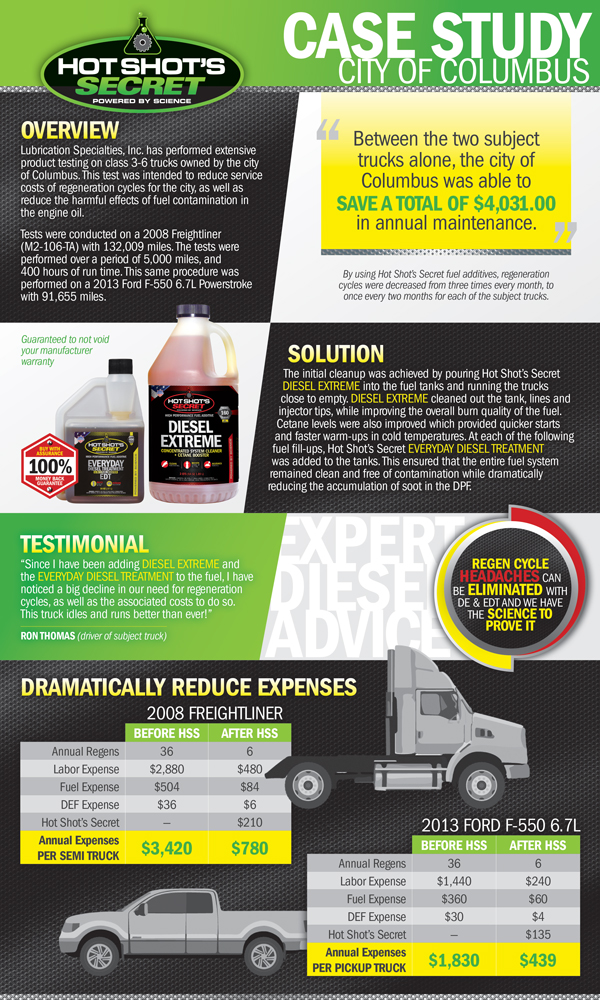
A DPF (diesel particulate filter) is a specially designed filter that is designed to capture soot from your vehicle’s exhaust system. The reason behind the need for DPFs is to meet the emission standards from the EPA. A blocked DPF filter can cause problems, which is why you need to make sure that it is clean. If it’s too late and you’re noticing a strong diesel smell, excess smoke, regen failure and, most commonly, the DPF light on your dashboard, your filter may require replacement or physical cleaning.
How Do I Know Whether My Diesel Particulate Filter Is Clogged?
Spotting the signs of a clogged DPF early can save you from more extensive issues down the road. Here are the most common symptoms to watch for:
- Engine management light: Your dashboard may display a warning light when your DPF is blocked. In many vehicles, this is an amber DPF warning, though some may use the check engine light instead. This light typically indicates excess soot or rising back pressure in the filter.
- Reduced engine performance: When the diesel particulate filter is clogged, the exhaust gases cannot flow freely. This obstruction forces the engine to work harder, resulting in noticeable power loss and sluggish acceleration. Drivers may experience a delayed response when pressing the accelerator, making it difficult to maintain desired speeds or handle uphill drives effectively.
- Poor fuel economy: A clogged particulate filter causes the engine to consume more fuel to compensate for the restricted exhaust flow. This inefficiency leads to decreased fuel economy, meaning more frequent visits to the gas station and higher operational costs.
- Excessive exhaust smoke and odors: A diesel particulate filter clogged with soot can produce excessive exhaust smoke and a strong, burning smell from the engine. These are clear red flags that the filter isn’t functioning as intended.
- Starting problems: High pressure from a blocked filter can make starting your engine difficult. In severe cases, the engine may fail to start altogether.
- Abnormal noises or turbo issues: Increased backpressure can strain the turbocharger, leading to unusual noises or damage.
Causes of DPF Blockages
Understanding the root causes of a blocked particulate filter is essential for effective prevention and maintenance:
- Frequent short trips and low-speed driving: Vehicles primarily used for short trips or urban driving at low speeds do not reach the optimal temperature required for the passive DPF regeneration process. Without adequate high-speed driving, the diesel particulate filter cannot burn off accumulated soot, leading to clogging over time.
- High mileage or aging components: As vehicles accumulate mileage, wear and tear on engine components can lead to increased soot production and decreased efficiency in the DPF regeneration process.
- Low-quality fuel: Low-grade diesel often produces higher soot levels, contributing to faster filter clogging.
- Faulty components: Issues with fuel injectors, DPF sensors or split intercooler hoses can disrupt regeneration and lead to blockages.
How to Unblock a Clogged DPF
There are various ways of removing soot and other residue from a clogged particulate filter.
Regeneration Cleaning Cycle
Most commonly, you’ll need to regenerate, this involves using heat from your fuel to convert the soot to ash. The ash is then burnt off by the heat. How far and how much you drive will determine which type of regeneration you will have to use. There are two types of regeneration processes — passive and active.
Passive regeneration is when you are driving at a high speed (70mph) for a very long time. This causes the soot to burn off. For most drivers, they will have to use the active regeneration method. The active regeneration method is for drivers who do not drive at a high rate of speed for a long distance. The active regeneration process begins when soot levels reach 45% of the DPF’s total capacity. A process of post-combustion fuel injection is then triggered which heats the exhaust.
Manually Cleaning Your DPF Filter
Professional cleaning is required at points for your DPF filter. Professional cleaning costs generally vary between $200 and $500. Having your DPF professionally cleaned will ensure you’re receiving proper airflow, your filter meets EPA standards and delay the costly replacement DPF filter.
Determining when you need to have your DPF professionally cleaned depends on your overall mileage and how frequently your vehicle stops. With those factors in mind, most DPFs on heavy-duty trucks need to be professionally cleaned every 100,000-150,000 miles. When it comes time to replace your DPF, the costs will be close to $2,000 or more.
Cleaning your DPF is just as important as changing your oil regularly. Your vehicle will run better, be EPA compliant, and you won’t have that annoying DPF light on your dashboard light up. Remember, if you’re not regularly driving long distances at high speeds, you’ll need to use the active regeneration method to burn off all the built-up soot in your DPF.
Eventually, you’ll need to have your DPF professionally cleaned to ensure proper airflow and confirm that you’re still EPA-compliant. Just like changing your oil regularly, staying on top of regular regenerations and professional cleaning will pay dividends on your vehicle’s performance and keep money in your wallet.
Why and How to Reduce DPF Regeneration Cycles
Excessive DPF regeneration cycles can significantly decrease engine performance, increase fuel consumption and strain your exhaust system. We know regens happen because of soot buildup in the diesel particulate filter. So, if we can lower our soot output, we can lower our regens significantly. The best way to accomplish this is by achieving a more efficient burn of our diesel fuel. There are two things needed to make this happen:
- Having clean fuel injectors.
- Burning higher cetane-rated fuel.
If we keep our fuel injectors clean, we’ll get closer to the perfect mixture of fuel and oxygen in our combustion chambers. Coupling a perfect air-fuel ratio with a higher combustible fuel (more cetane), we will achieve a more efficient burn of fuel. This means less soot being pushed through our DPFs and fewer regens.
Cut Regens By 50% With Hot Shot’s Secret
What if you could reduce the number of regeneration cleaning cycles by up to 50%? You can by using Hot Shot’s Secret Diesel Extreme and Everyday Diesel Treatment.
- Everyday Diesel Treatment (EDT): This powerful additive increases cetane by 7 points and keeps fuel injectors clean. The result is a more efficient combustion process, reduced soot output and prolonged DPF life.
- Diesel Extreme: Diesel Extreme eliminates carbon deposits and stubborn soot from critical engine components. This deep clean improves combustion efficiency and further reduces soot trapped in the DPF.
Third-party testing by the City of Columbus confirmed that Hot Shot’s Secret products reduce regens by up to 50%, delivering significant savings on fuel and maintenance costs. Backed by a 100% satisfaction guarantee, these solutions enhance vehicle performance and ensure your DPF operates efficiently for the long haul.
Invest in Hot Shot’s Secret Solutions Today
By incorporating Everyday Diesel Treatment (EDT) and Diesel Extreme into your regular maintenance routine, you can achieve a more efficient fuel burn, minimize soot production and significantly reduce the frequency of DPF regeneration cycles. Hot Shot’s Secret products undergo rigorous testing to validate their effectiveness. Invest in our premium solutions today to experience smoother driving and extended engine life.

